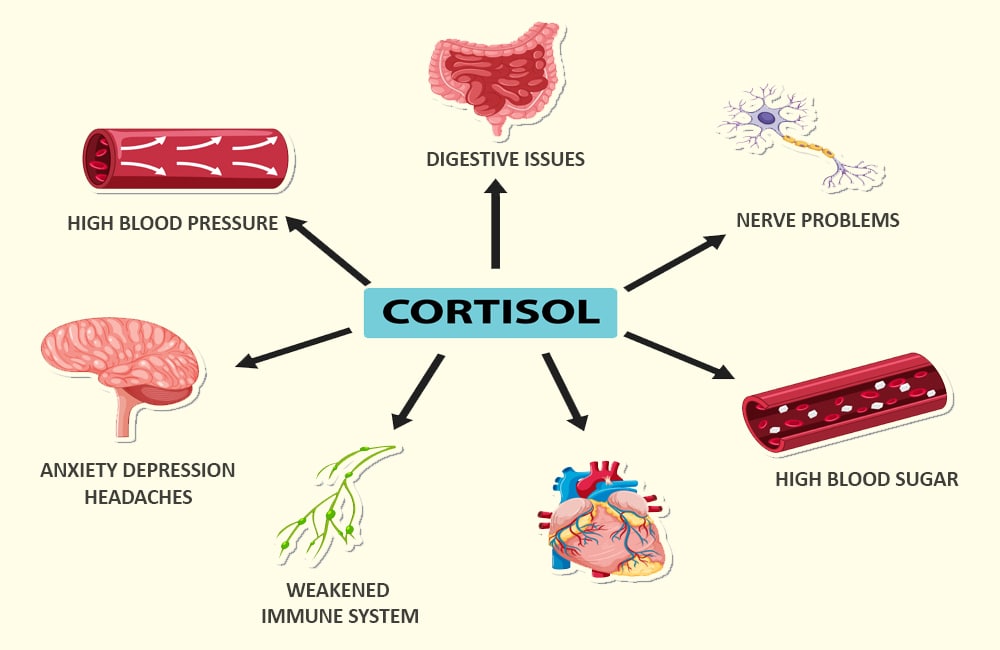
High cortisol levels can result from stress and various other underlying health conditions. People with high cortisol levels may experience a range of symptoms, like excessive fatigue, acne, and weight gain.
Everyone experiences high cortisol levels from time to time because the levels usually vary throughout the day. This is actually your body's defense mechanism for potential threats or dangers. However, if your body constantly produces too much cortisol, it may indicate the presence of underlying health conditions like hypercortisolism or Cushing syndrome. Read on to learn about its symptoms, causes, and treatment.
What is cortisol?
Cortisol is a steroid hormone that your adrenal gland produces, and the hypothalamus-pituitary-adrenal axis manages how much your body needs to release cortisol. The majority of your body's cells have cortisol receptors. The functions of cortisol include:
Cortisol is very important for health; your body continuously checks cortisol levels to maintain steady levels. However, too high cortisol levels may cause several uncomfortable symptoms.
What are the symptoms of high cortisol levels?
The symptoms of high cortisol levels can appear throughout the whole body. Also, the symptoms usually vary from person to person depending on what is raising the cortisol levels. The general symptoms include:
What are the causes of high cortisol levels?
Having abnormally high levels of cortisol for a longer period of time is usually considered Cushing syndrome. The primary causes of high cortisol levels include:
When should I see a doctor?
If you suspect you have high cortisol levels, then you need to go for a doctor's consultation and medical tests. Generally, high cortisol levels cause non-specific symptoms, which means several conditions can cause high cortisol levels.
If you are having symptoms that might be due to high cortisol levels, then your doctor would recommend certain clinical tests, including a blood test. You can find a cortisol test in thyrocare blood test packages.
Having high cortisol levels for a longer period of time can impact your health negatively and increase your risk of developing various illnesses. That is why it will be a wise decision to go for a thyrocare full body checkup once a year to monitor your overall health.